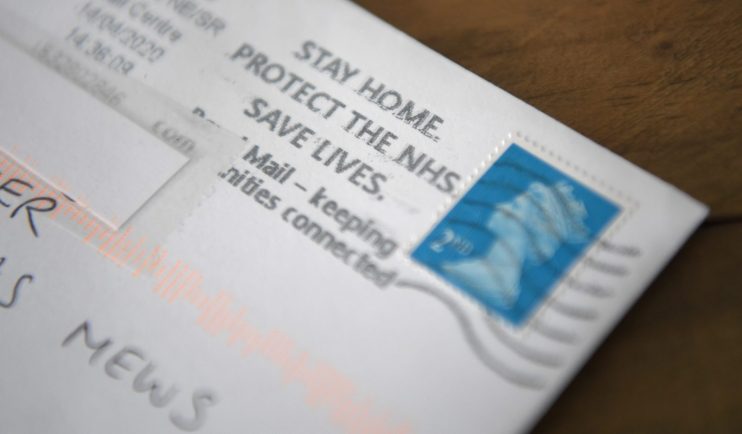Vaccine or no vaccine, Britain must relearn how to live with risk

The approval this week of the Pfizer/BioNTech vaccine in the UK heralds the beginning of the end of this hellish pandemic.
People are rejoicing — and rightly so. A vaccine was the light at the end of the Covid tunnel, and with the first doses due to be administered in a matter of days, there is hope of a return to normality by the spring of next year.
It is, without doubt, the best Christmas present Britain could have hoped for. But perhaps we shouldn’t be celebrating just yet.
For if we are every going to rediscover many of the joys of pre-Covid life, a vaccine is only part of the answer. Fundamentally, we as a nation — our politicians, our media, our medical establishment and beyond — will have to become comfortable once more with the concept of risk.
Consider the explosive comments made by deputy chief medical officer Jonathan Van-Tam earlier this week. When asked whether some of the Covid precautions with which we have become so familiar would continue post-vaccine, he replied that they “will perhaps persist for many years”.
Clearly, a nationwide habit of more frequent hand-washing is no bad thing. Similarly, ending the culture of “presenteeism”, where workers feel compelled to go into the office when ill and risk infecting everyone else, is to be applauded.
But what about continued insistence on mask-wearing — not just on public transport as is common in Asian countries, but in shops, theatres, libraries, or when not seated at the table in pubs or restaurants? What about masked weddings, for that matter, where dancing is strictly policed to limit physical contact? Or restricting guest numbers at events to maximise personal space, requiring pre-booking, or strict bans on entry for anyone with cold symptoms?
Each of these minor inconveniences seems trivial when confronting the risk of a new and dangerous pathogen. Who wouldn’t wear a mask or forgo a night out for the sake of saving a life? That is what we, as a nation, have prioritised above all else this past year.
The question is where does it stop. Already, there are calls — most notably from the health secretary — for Covid-like precautions to be extended to limit flu outbreaks.
Flu symptoms are less specific than Covid symptoms, including a sore throat, a runny nose, and a headache. These are unhelpfully the symptoms of the common cold — something children contract on a frequent basis — and the non-medical public tends to be hazy on knowing the difference.
But the fact remains that nearly 2,000 people are admitted to UK intensive care units with flu each year, of which about 100 die. If the national priority is to save every life, then it would be inconceivable not to expect calls for mandatory flu isolation. Surely if fines of up to £10,000 for non-compliance were appropriate for Covid isolation, that should apply to flu too, no matter the cost or inconvenience?
That is the message that has been drilled into us for the past nine months: that any irresponsible action that could inadvertently “kill Granny” is unacceptable. Averting this tragedy was seemingly worth keeping millions of children at home for a third of school the school year, with the sad consequence that the most disadvantaged pupils are now two years behind their peers in terms of educational attainment. It was also worth three million missed cancer screenings, and that is to say nothing of the resulting economic crisis which, we have been told, is the most severe for 300 years.
The debate about such a trade-off — how to weigh extending the life of an 80-year-old care home resident against years of lost education for a vulnerable child, or a missed cancer diagnosis for an otherwise healthy adult, or a business collapse driving staff into long-term unemployment — was never had, at least not publicly and explicitly.
Rather than talk candidly and honestly about the costs and benefits for lockdown policies, the government chose the easy option: brand every intervention as a means to “save lives”, and refuse to countenance debate about the unintended consequences.
This failure has utterly skewed our national perception of risk — and it will take more than a vaccine to set it right. It is simply not possible for the government to protect us from all threats all of the time.
Our policymakers have to be comfortable discussing potential harms in a rational way: whether that refers to road fatalities (around 1,790 lives could be “saved” by banning private vehicles, though the social and economic consequences would be severe), alcohol-related deaths (7,500 lives “saved” — plus reduced strain on the NHS — but the loss of an entire industry and the emergence of a black market), or continuing with social distancing measures for the sake of eliminating other viruses.
If they are not bold enough to change course — and if we, the public, are too afraid to listen if they do — enforced hand-washing will be the least of our worries. The culture of risk-aversion at all costs will persist, and those costs will be substantial. Look at every policy challenge through the lens of reducing the risk of immediate harm to zero, and the result could be a very miserable society, even after Covid-19 is a distant memory.
Lockdown may well have been the best policy to tackle Covid while we waited for a vaccine, but now we must relearn a healthy attitude to risk. If we want to protect everything that makes life worth living, Britain must accept that not every life can be saved.
Main image credit: Getty